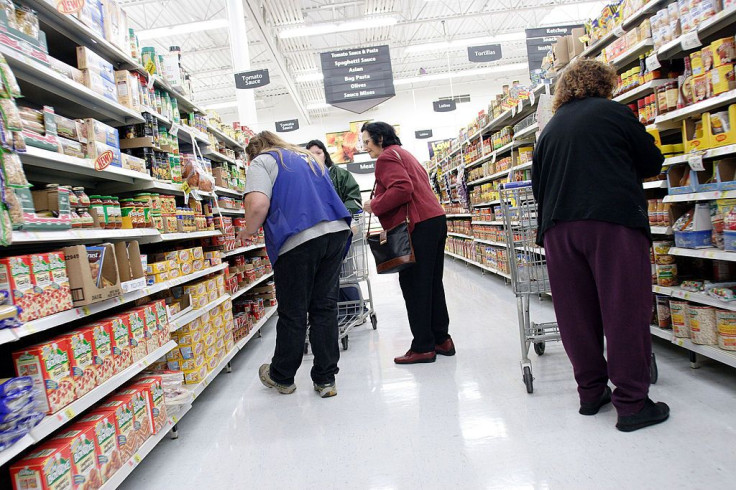Walmart To Increase Prices As US-China Trade War Continues

Walmart, Inc., the largest retailer in the U.S. and the the world's largest company by revenue, will raise prices on some products as a result of President Donald Trump’s higher tariffs on Chinese goods.
Walmart is boosting its prices despite its lower reliance on China for its products compared to other retailers. Much of the products sold by Walmart come from the U.S. and South America. Walmart’s grocery operation, which includes fresh food, contributes 56 percent of the company’s total revenue
In its announcement made Thursday, Walmart CFO Brett Biggs said “increased tariffs will lead to increased prices, we believe, for our customers." Biggs, however, promised Walmart will “continue to do everything we can to keep prices low.”
Biggs didn’t identify which items will become more expensive. He said Walmart's merchant teams have been developing strategies to mitigate cost increases and are working with its suppliers to manage prices.
Biggs said Walmart will try to ease consumer pain by trying to obtain products from different countries and by working with suppliers' costs structures "to manage higher tariffs."
Walmart imports 26 percent of its merchandise from China compared to Target, which imports 34 percent of its products from the Asian country. Analysts said other companies such as sporting goods, auto parts and furniture sellers have an even greater exposure to China.
U.S. retailers are heavily dependent on China for much of the goods they sell domestically. China accounted for about 41 percent of all apparel sold by U.S. retailers, 72 percent of all footwear, and 84 percent of all travel goods imported into the United States in 2017.
Earlier this month, Trump increased tariffs on $200 billion worth of Chinese imports to 25 percent from 10 percent. His move is widely expected to raise prices on thousands of products including clothing, furniture and electronics. China retaliated on Monday, saying it will raise tariffs on $60 billion of American-made imports on June 1.
In addition, the U.S. has started a formal process that will levy new tariffs on the remaining exports coming from China that aren't already taxed. That will make more Chinese-made goods, including toys, clothes and sneakers, more expensive for American consumers.
Retailers have repeatedly warned Trump his new tariffs are hitting their businesses hard. Macy's on Wednesday said it will increase the prices on some merchandise because of the trade war with China.
"If the potential fourth tranche of tariffs is placed on all Chinese imports, that will have an impact on both our private and our national brands," said Macy’s CEO Jeff Gennette. He said it will be hard for Macy's to "find a path" to avoid increasing prices on consumers.
Retail sales fell unexpectedly in April as households slashed purchases of vehicles and a range of other goods, confirming a slowdown in economic growth after a temporary boost from exports and inventories in the first quarter.
© Copyright IBTimes 2024. All rights reserved.




















